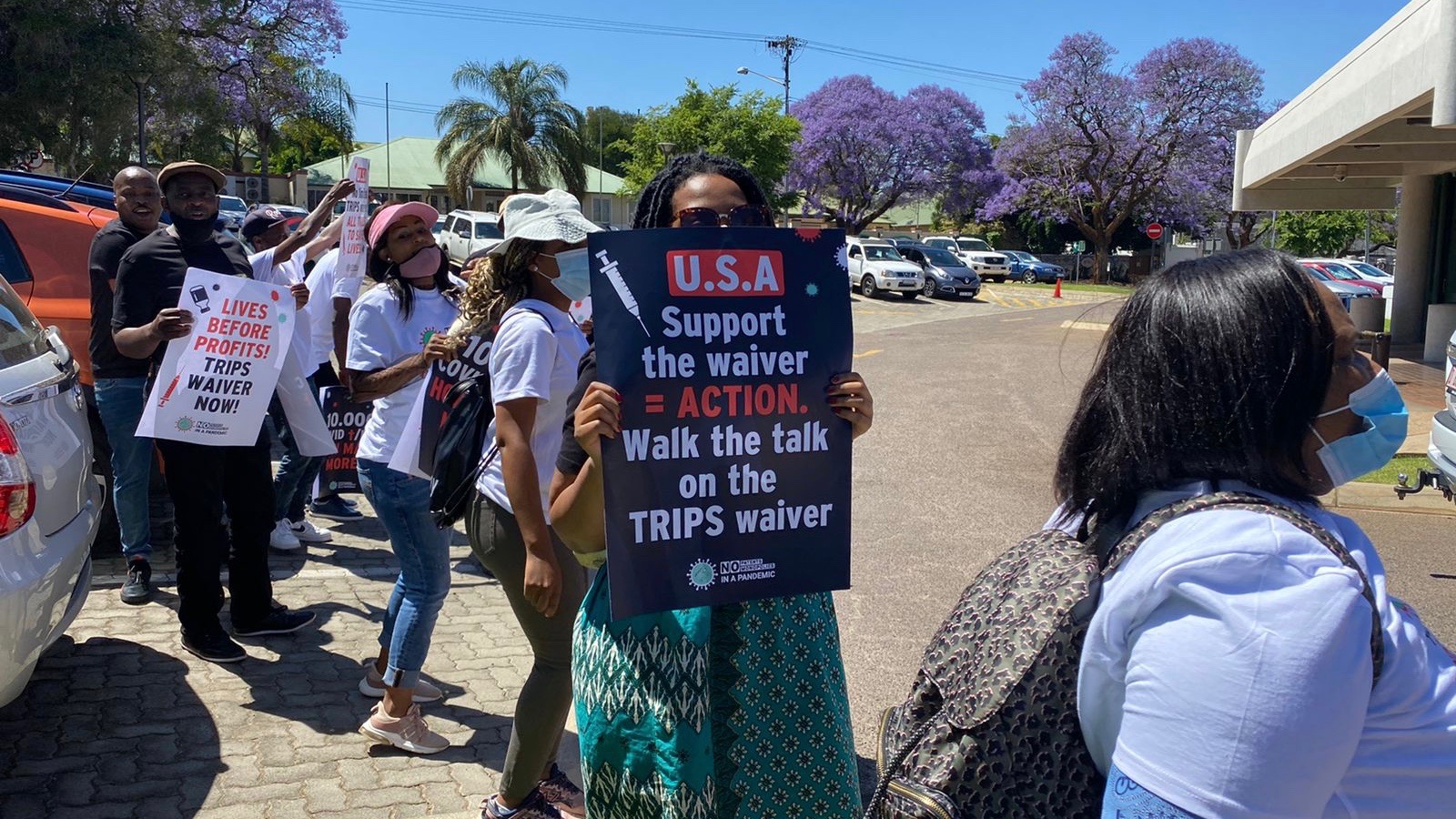In August this year, a coalition of civil society organizations in South Africa, which includes the Health Justice Initiative (HJI) and the Public Service Accountability Monitor (PSAM), achieved a remarkable breakthrough in the discussion surrounding COVID-19 vaccines. This milestone was reached after the Pretoria High Court issued an order instructing the Department of Health to disclose the contracts and proceedings of meetings pertaining to the procurement of COVID-19 vaccine doses from Pfizer, Janssen, the Serum Institute of India, and the public-private global health partnership Gavi.
During a press conference convened on Tuesday, September 5, Fatima Hassan, director of HJI, emphasized that the analysis of the contracts, delivered by the Department of Health to the organizations at the end of last month, provided evidence of a concern that health activists had voiced since the onset of the COVID-19 pandemic. The undue influence of pharmaceutical giants in the vaccine procurement process exacerbated inequalities and placed extreme strain on public budgets. As Hassan stated during the conference, pharmaceutical companies retained absolute power throughout the process, while governments, particularly those in countries like South Africa, were bullied and effectively ransomed during negotiations for adequate vaccine supplies.
The extent to which companies like Janssen misused their position to maximize profits is remarkable. Jay Kruuse of PSAM highlighted that in Janssen’s case, the contract did not stipulate any deadlines for delivering the agreed-upon number of vaccine doses to South Africa. As Kruuse noted, these contracts offered the company unchecked freedom to export vaccine doses as they saw fit, despite having production capabilities within South Africa. This clause applied even in cases where South Africa would grapple with severe spikes and crises.
Contracts signed with Pfizer were no better, according to Matthew Herder from the Dalhousie Health Law Institute. The contracts placed the burden and responsibility exclusively on South Africa, with Pfizer failing to guarantee even the very basics, such as delivery of contracted doses. In the event of non-compliance by the company, the contracts stipulated that the South African government could only recover half of the payments they made. This, needless to say, would have been devastating in the midst of a pandemic.
Read: The people of the world vs Pfizer Inc.
Adding to that, South Africa found itself paying higher prices for certain vaccine doses compared to countries in the Global North. For example, a dose of the AstraZeneca vaccine produced by the Serum Institute of India was priced at USD 10 per dose, 2.5 times more than what the UK government paid for the vaccine. Why that is so remains unclear, said Nick Dearden from Global Justice Now. But even as more information becomes available through additional documentation that the Department of Health will hand over until the end of September, it should be unacceptable that low income countries were charged more than high income ones.
Big Pharma’s COVID-19 heist was not slowed down even by international mechanisms supposed to secure timely access to COVID-19 vaccines in low income countries. Brook Baker, policy analyst for Health GAP, stressed that the most heralded of such mechanisms, COVAX, failed miserably at what it was supposed to do. In the case of South Africa, COVAX ended up delivering only one tenth of the doses it was supposed to supply.
Neither did COVAX curtail the vaccine nationalism and hoarding observed in high-income countries, said Baker. Despite global discussions emphasizing equality during the pandemic, no institutional measures were put in place to stop pharmaceutical companies from prioritizing wealthier customers in the Global North. The fact that contracts permitted Janssen to export vaccine doses to Europe while South Africa was grappling with a COVID-19 crisis, as noted by Fatima Hassan, should be seen as “the greatest scandal of all.”
While activists have applauded the court’s decision to make these documents public, they also caution against seeing this as the end of the road. Transparency is a crucial step in holding governments accountable to their citizens, but a more comprehensive reform of the trade system is imperative for genuine change in the field of access to medicines. As negotiations continue regarding the Pandemic Treaty, some of the speakers at HJI’s press conference warned that threats posed by pharmaceutical companies can often be indirect. Some of the contracts scrutinized in South Africa did not even contain explicit confidentiality clauses that would formally prevent the government from disclosing them to the public. But, as Brook Baker pointed out, negotiators would have been made aware that if they divulged too much information, the pharma companies would not work with them in the future.
The most important lesson to be learned from the COVID-19 vaccine saga is the path not to take in addressing future pandemics, Baker said. Future responses should be driven by the dedication to people’s health, and not the protection of trade secrets and profits—a change that is still being fought out in global health.
People’s Health Dispatch is a fortnightly bulletin published by the People’s Health Movement and Peoples Dispatch. For more articles and to subscribe to People’s Health Dispatch, click here.





